Iola Evans Poured Everything Into 'Washington Black'
The talented newcomer stars in the Hulu period drama as Tanna, a woman determined to embrace her biracial identity in 1800s Nova Scotia.
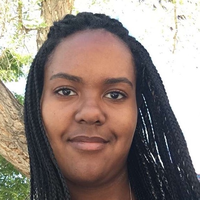
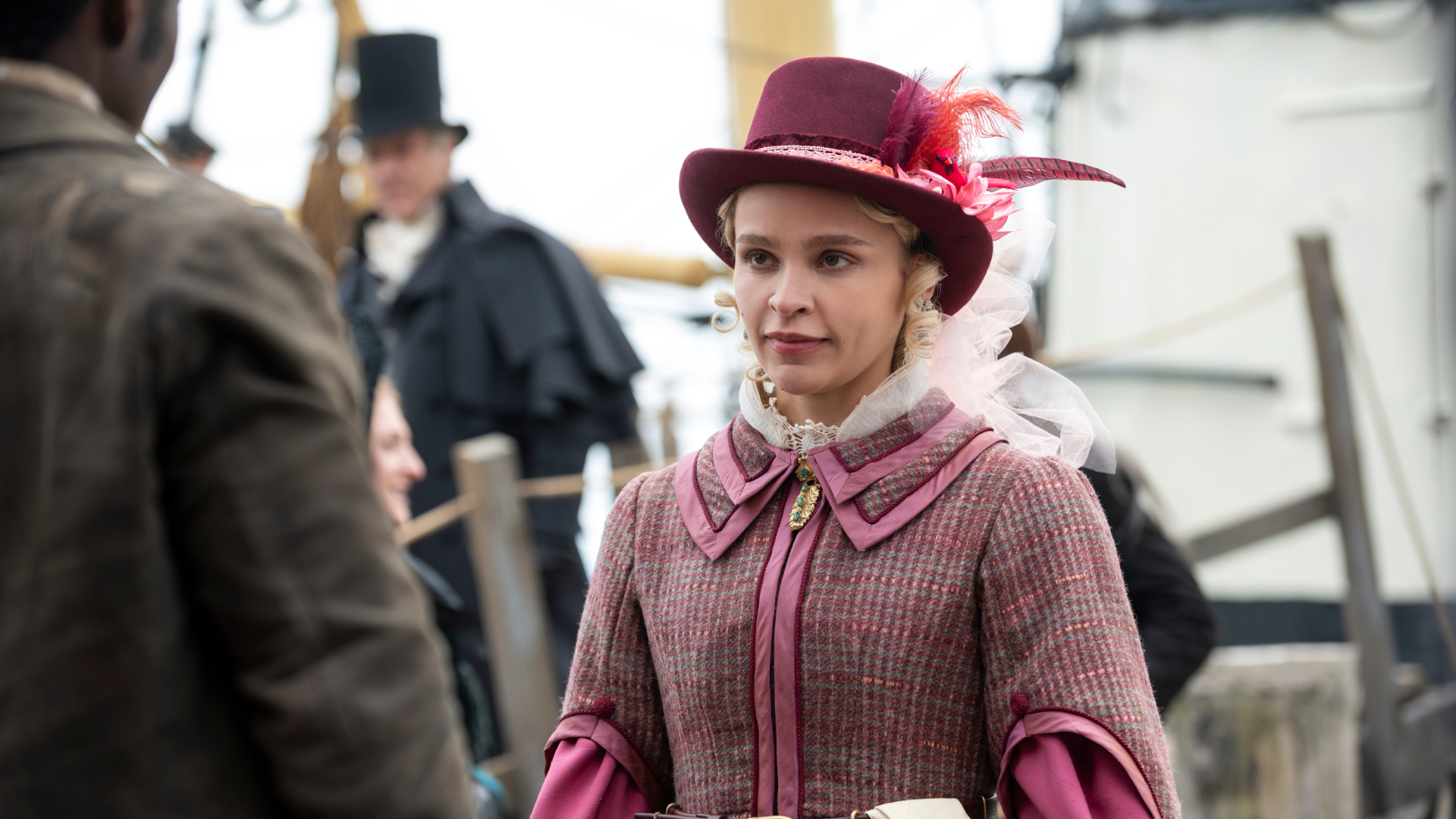
From her very first scene in Hulu’s new miniseries Washington Black, Iola Evans is a force to be reckoned with. In the series adapted from Esi Edugyan’s book of the same name, the actress plays Tanna Goff, the daughter of a 19th-century scientist who appears to be a typical English rose. Her true identity as a biracial woman with a mother from the Solomon Islands is a monumental secret in the age of slavery—but it’s not one that Tanna wants to keep. As Tanna and her father begin their new life in Nova Scotia, and he insists that she must only be a “child of England,” she asks the simple question, “Why can’t I be more?”
The coming-of-age period drama is a tale of self-discovery and defiant joy for many of its characters, including Tanna and the titular character, a genius inventor who escaped slavery (played as an adult by Ernest Kingsley Jr.). It was the same for Evans, who has previously held roles that reflect her biracial identity, including her 2018 stage debut in Branden Jacobs-Jenkins’s play An Octoroon. "It was nice to play a character who just wants to be her whole full self, which is like, Why can I not be that?” Evans tells Marie Claire at a London junket and activation.
She adds, "I was doing a bit of processing in real time."
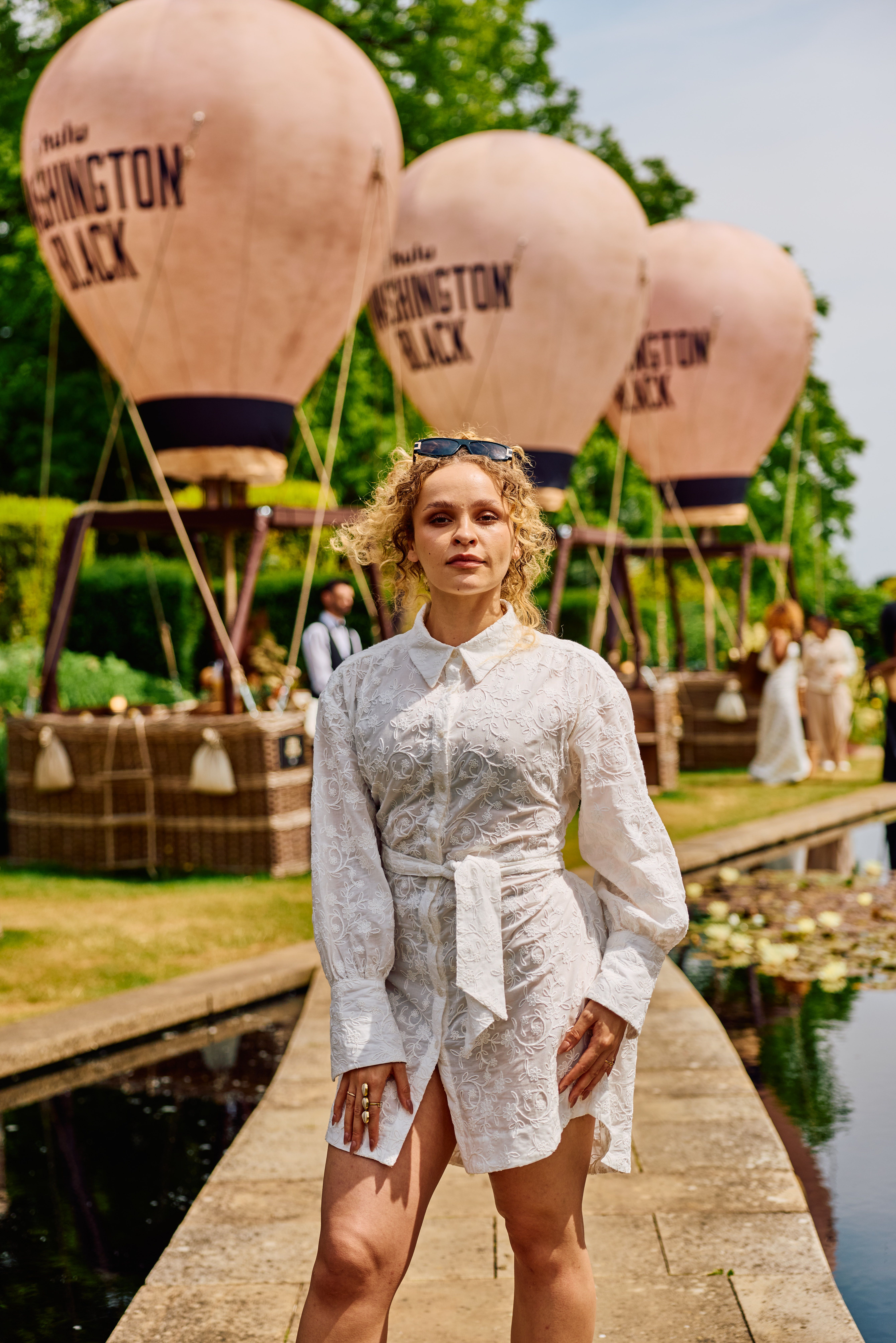
Iola Evans attends Hulu's Washington Black activation at The Grove Hotel in Hertfordshire, England.
Filming the Hulu series was an emotional experience for the Reading, England-born actress and the rest of the cast, who spent several months traveling between Nova Scotia, Mexico, and Iceland. But still, her co-star and series executive producer Sterling K. Brown describes her as being “wickedly fierce” throughout the entire shoot. “I feel like that fierceness comes across in Tanna in the most incredible ways,” he says. “[Tanna] was not a damsel-in-distress by any stretch of the imagination, nor is Iola. She’s the perfect person to bring this character to life.”
Below, Evans chats with Marie Claire about depicting an 1800s love triangle, channeling mythology for Tanna’s backstory, and the legacy she wants to leave beyond Hollywood.
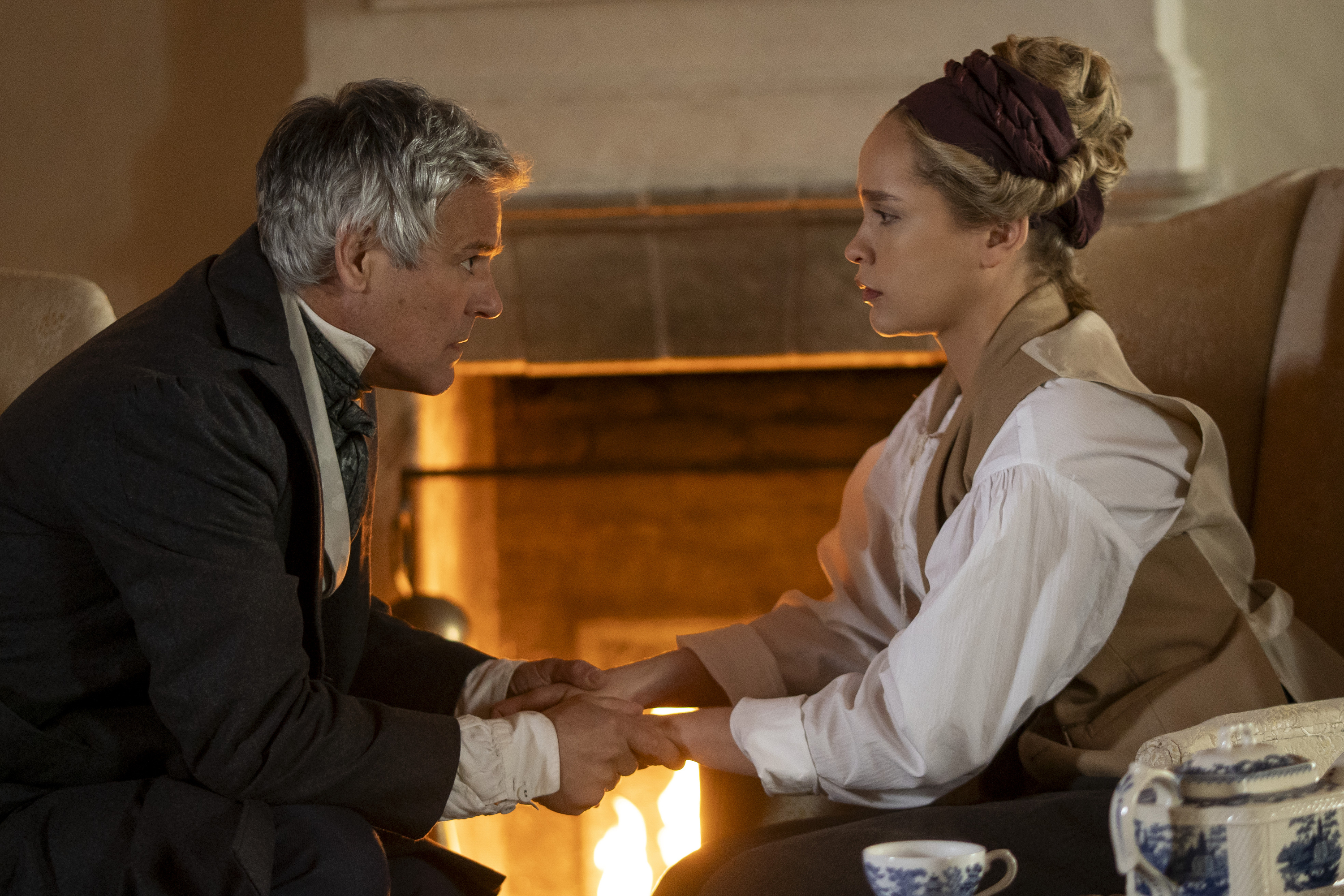
Tanna's father (Rupert Evans) encourages Tanna (Iola Evans) to pass as white and marry a wealthy man.
MC: When you first heard about Washington Black and the role of Tanna, what made you excited about the project?
IE: I was excited to do something which was being made by the creator Selwyn [Hinds] because I [previously] went up for another project that he did. I think he's so gracious and kind. We had a general meeting, and we had this amazing chat about what it means to be an artist. It was all sorts of things, which I hadn't really thought about before, and it came up at this special time. So when [Washington Black] came up, I was excited to be seen for it. Then I read the book and fell in love with Esi's original story and the original Tanna, and I was excited to see where it went from there.
Get exclusive access to fashion and beauty trends, hot-off-the-press celebrity news, and more.
MC: Tanna’s first scene introduces her as someone who demands to be more than what society had for her. What about her story did you relate to?
IE: Part of what Tanna's challenge is is taking responsibility for her own identity, because I think other people are quite quick to assign it to her. There are a lot of quite constrictive social things going on that she is obligated to behave a certain way to pass as white. Her own father is encouraging her to pass too. But I really think our lives are so precious, so you have to—as best as you can with what you've got—try and be on this quest for a fully realized, authentic existence. And to be around people who bring that out in you, and this is what Tanna and Wash do for each other.
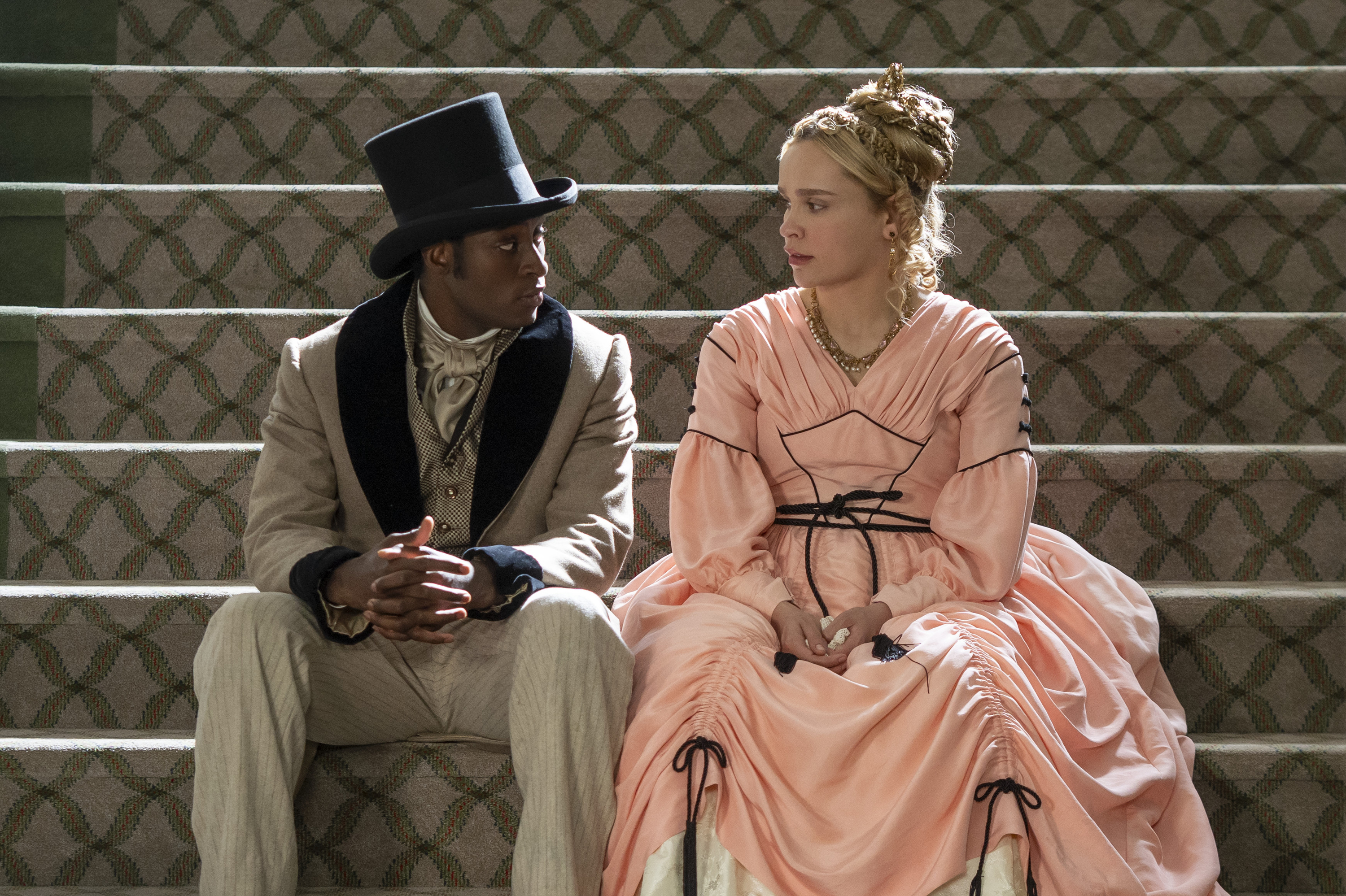
Evans says that Wash (Ernest Kingsley Jr.) is "the first person in [Tanna's] young adult life who really sees her for who she is."
MC: How much does Tanna’s attitude towards her biracial identity relate to your own experience?
IE: I've been quite lucky in that a lot of my roles have really explicitly been exploring someone grappling with their racial identity. With An Octoroon, because that was my first job and I was just trying to do a good job, things hit me afterwards. With that one, [the character] hated her Blackness. It's really been a journey for me as well, exploring my own racial identity and some of the privileges and challenges that come with being racially ambiguous. It depends who's looking, and you see Tanna navigate some of that as well, so that was interesting for me.
I don't know if we have a precedent yet for how we make sure we take good care of ourselves on jobs that tackle very personal themes. But I think on Washington Black, a lot of the cast and crew had quite personal connections to the story or aspects of the story. And for me as well, it was a real lesson in trying to lead with openness, be aware of the own limitations in my experiences, and meet with people who are from the Caribbean, who are from Africa, who they don't know what their heritage is because they've been denied—and everyone's different relationship to their own Blackness. I felt really good to be a part of that.
MC: When you were building your character, how did you imagine Tanna's mom?
IE: I had this idea that Tanna almost imagined her mother as this god-like figure because her time with her was cut short, and ever since then, she's been trying to get back to this time where she felt free and whole and at home. I took a bit of inspiration from the Yoruba goddess Oshun. I saw some different artwork, and this is kind of how I imagined her mother.
I really think our lives are so precious, so you have to—as best as you can with what you've got—try and be on this quest for a fully realized, authentic existence.
MC: How did you build your relationships with Ernest Kingsley Jr. and Edward Bluemel, who play the two love interests, Washington Black and Billy McGee?
IE: There's sort of tension between the two. At the start of the story, Tanna is a little naïve to some of the obligations she might have to face, and there is a reason why her father is strongly suggesting that she conforms to a certain expectation of how she should appear. So, I think McGee represents that obligation and a much more established route to a future. But he's also more charming than she would like, considering that she's like, No thank you. He offers her security and even wants her to embrace some bits of herself—playing the piano and things like that.
Whereas Wash, I think, is the first person in her young adult life who really sees her for who she is. She's felt so disconnected from her own Blackness, so I think there's something about Wash, which also feels very important to her in that aspect. But also because she has been denied a lot of the experiences of being an unambiguously Black person in that time period, there are quite a lot of limitations of her understanding. So, there's a lot of risk involved in her relationship with Wash, but you see them start to understand each other better over time as they grow as people.
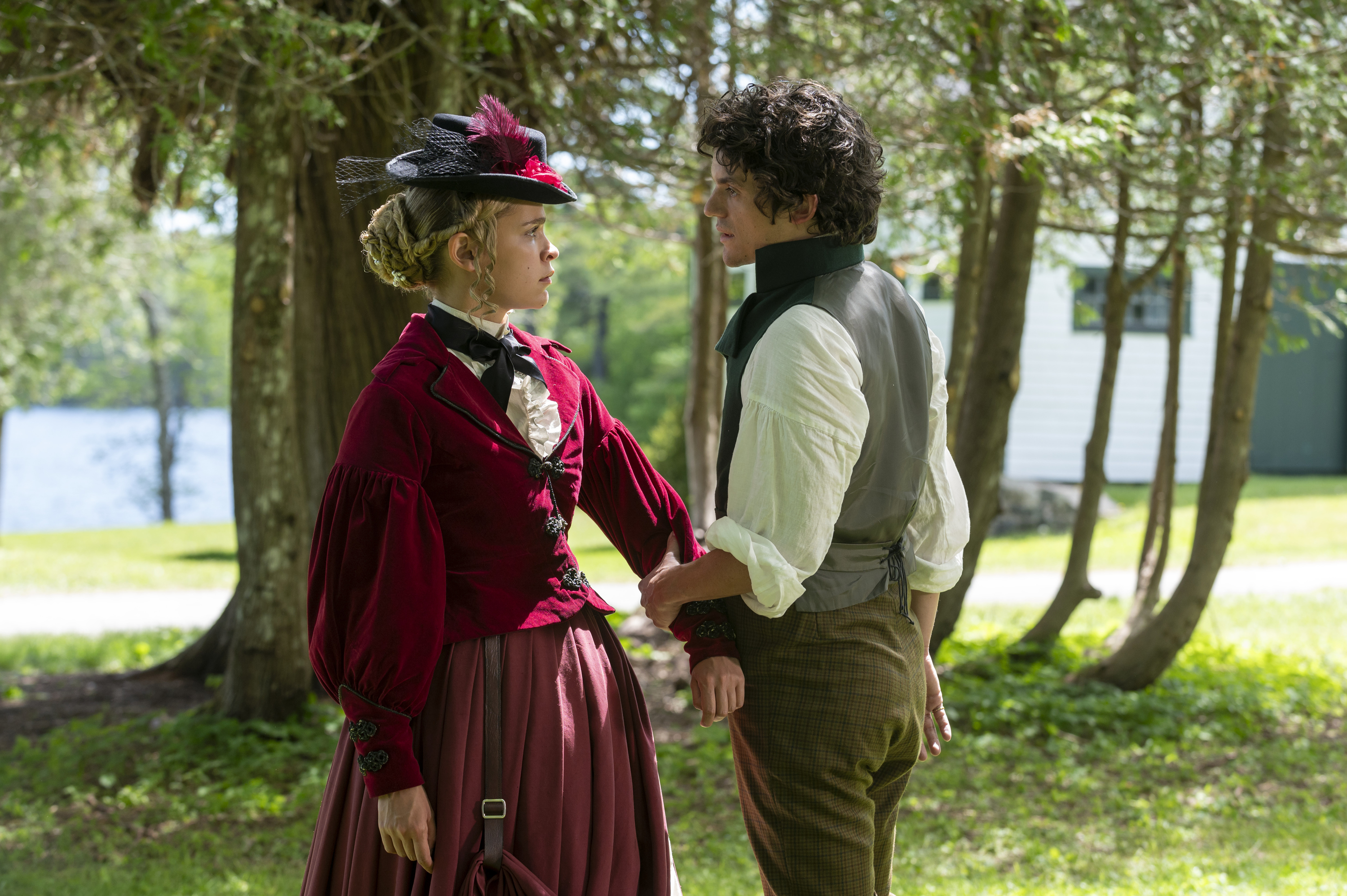
Tanna (Evans) and Billy McGee (Edward Bluemel) have a tense conversation.
MC: If Tanna met Billy casually and there was no arranged marriage from the start, do you think that she could have grown to love him?
IE: Quite possibly. For the first two minutes that they know they meet each other before Tanna knows the situation, I think she's like, Oh, who's this guy? The three of them [Tanna, Billy, and Wash] [are] all interested in carving out their own identity, even if it's unconventional. I think, as well, though, at the start of the story, Tanna is a little lonely because she has been denied a sense of community. So I would hope that she wouldn't end up with McGee just like the first person who came along who was nice. I'm glad that you see her get to understand more of herself through the different relationships she forms along the course of the story.
MC: Tanna is very clear about wanting to build a legacy for yourself. What do you hope your legacy will be?
IE: Truthfully, I always really wanted to be involved in climate conservation. When I hoped to grow up to be an actor, I saw how actors could use their platform to talk about important issues and use their wealth to try and do something useful about it. I know there are arguments about, Should you speak on certain things or should you just shut up and do your job? But I would like to live a life where I try to do minimal harm—I don't think you can do no harm—and try to always lead with curiosity. I really hope for the future that we can find a bit more of a sustainable way to live with each other and our environment. That's my hope.
This interview has been edited and condensed for clarity.
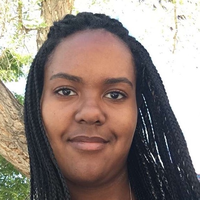
Quinci LeGardye is a Culture Writer at Marie Claire. She currently lives in her hometown of Los Angeles after periods living in NYC and Albuquerque, where she earned a Bachelor’s degree in English and Psychology from The University of New Mexico. In 2021, she joined Marie Claire as a contributor, becoming a full-time writer for the brand in 2024. She contributes day-to-day-content covering television, movies, books, and pop culture in general. She has also written features, profiles, recaps, personal essays, and cultural criticism for outlets including Harper’s Bazaar, Elle, HuffPost, Teen Vogue, Vulture, The A.V. Club, Catapult, and others. When she isn't writing or checking Twitter way too often, you can find her watching the latest K-drama, or giving a concert performance in her car.